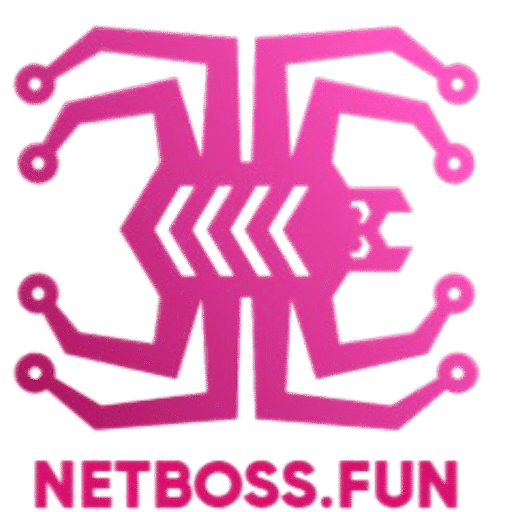Understanding Each Field
In the rapidly evolving technological landscape, three prominent fields have gained immense recognition: data science, mobile development, and game development. Each area is distinct yet interconnected, catering to different skill sets and interests.
Data science primarily focuses on the analysis and interpretation of complex data sets. Professionals in this field leverage statistical and computational techniques to derive actionable insights from data. Core responsibilities include data collection, cleansing, analysis, and visualization. To succeed in data science, one typically needs strong skills in programming languages like Python or R, proficiency in statistical methods, and knowledge of machine learning algorithms. The outcome of a successful career in data science is the ability to influence business strategies, develop predictive models, and facilitate data-driven decision-making.
Mobile development, on the other hand, revolves around creating applications for mobile devices such as smartphones and tablets. This domain requires a strong command of programming languages like Java, Swift, or Kotlin, as well as an understanding of user interface (UI) and user experience (UX) design principles. Mobile developers engage in designing, coding, testing, and deploying applications while ensuring that these apps function efficiently across various platforms. A successful career in mobile development often leads to the production of innovative applications that enhance user engagement and satisfaction.
Lastly, game development encompasses the design and creation of video games across diverse platforms. Professionals in this field are responsible for various aspects, including game concept development, programming, art design, and sound effects. Skills required in game development typically include familiarity with game engines like Unity or Unreal Engine, as well as proficiency in programming languages such as C# or C++. A thriving career in game development can result in the creation of engaging and immersive gaming experiences that captivate a wide audience.
By understanding these fields, individuals can better determine their personal interests and skills, guiding them toward a rewarding career path.
Assessing Your Interests and Skills
Making a choice between data science, mobile development, and game development requires a thorough understanding of your own interests and skills. Engaging in self-assessment techniques can significantly assist in identifying where your strengths lie and which career path aligns best with your passions. Start with self-reflection by asking yourself key questions. What captivates your attention? Do you enjoy analyzing data sets, or does the idea of coding a mobile app excite you more? These reflections can help narrow down potential career choices.
Another effective method is to take inventory of your skills and experiences. Consider your proficiency in analytical thinking, creativity, and problem-solving. For instance, data science often demands a high level of analytical proficiency, particularly in handling statistical analysis and data interpretation. Conversely, mobile development typically requires a creative mindset to innovate and design user-friendly applications. Game development merges both analytical and creative skills, wherein you design engaging experiences while also coding complex mechanics.
To further evaluate your skills, consider participating in online quizzes or assessments that focus on career interests in technology. Many platforms offer tools that can guide you in determining your inclinations toward data science, mobile development, or game development. Additionally, engaging in projects or online courses relevant to these fields can serve as practical assessments of your skills and passions, offering insights into which area you may excel in or enjoy the most.
Building a comprehensive view of your interests and skills is key to making an informed decision on which career path to pursue. By utilizing self-reflective questioning, skills inventory, and practical engagement, you can confidently identify a field that resonates with your capabilities and aspirations.
Market Demand and Career Opportunities
The technological landscape is continuously evolving, and with it, the demand for skilled professionals in various fields. Data science, mobile development, and game development represent three dynamic sectors that reflect substantial market demand and career opportunities. According to recent studies, data science tops the list of burgeoning fields, with a projected growth rate of approximately 31% from 2021 to 2031. This rapid expansion is driven by the increasing reliance on data-driven decision-making across industries, leading to a growing need for data analysts, data engineers, and machine learning experts. This sector offers not only diverse roles but also competitive salary ranges, with entry-level positions averaging around $85,000 annually and experienced data scientists earning upwards of $130,000.
Conversely, mobile development continues to thrive as smartphone usage intensifies globally. The mobile app market is expected to reach $407.31 billion by 2026, prompting an urgent need for mobile developers proficient in programming languages such as Swift and Kotlin. The Bureau of Labor Statistics (BLS) anticipates a job growth rate of 22% for software developers over the next decade, suggesting robust opportunities in this space. Mobile developers can expect salaries averaging $105,000 per year, significantly influenced by expertise and location.
Game development, while slightly less expansive in growth compared to data science and mobile development, remains a lucrative field. The gaming industry has witnessed a remarkable surge, particularly with the rise of eSports, virtual reality, and mobile gaming. Employment opportunities for game developers are predicted to grow by 9% through 2030, with average salaries around $104,000. The unique blend of creativity and technical skills required in this domain appeals to many aspiring professionals.
In conclusion, the decision to pursue a career in data science, mobile development, or game development should be informed by the prevailing market trends and future growth potential in these fields. Understanding the dynamics and salary expectations within these sectors can help individuals make strategic career choices aligned with their interests and strengths.
Making the Decision and Taking the Next Steps
As you contemplate your future in technology, making the decision to specialize in data science, mobile development, or game development requires careful consideration of your interests, skills, and market demand. After weighing these factors, the next steps are crucial in solidifying your career path. First, extensive research is imperative. Investigate each field’s educational requirements, available certifications, and historical job growth statistics. Consider reputable online platforms and institutions offering courses tailored to your preferred domain. The relevance of your chosen education route cannot be understated in today’s rapidly evolving job market.
Equally important is networking with industry professionals. This practice not only broadens your understanding of the field but also opens doors to potential mentorship opportunities. Participate in industry-specific forums, attend workshops, and leverage platforms like LinkedIn to connect with professionals already entrenched in data science, mobile, or game development fields. Gaining insights from those working in your field of interest can help clarify your decision and may provide invaluable guidance on navigating your chosen career path.
Furthermore, consider engaging in short courses or project-based learning. By immersing yourself in actual projects, you are afforded a practical grasp of the challenges and workflows associated with each field. Many online platforms provide opportunities for you to explore hands-on lessons in coding, data analysis, or game design. These initiatives can serve as a litmus test for your genuine interest and aptitude in your chosen area. Gaining hands-on experience, even in small increments, can be particularly beneficial in shaping a clear career direction.
Ultimately, taking the time to explore these avenues will provide you with clarity and confidence in making this pivotal career choice. Your commitment to thorough research and active engagement will set the stage for a successful journey in your selected field.


No responses yet